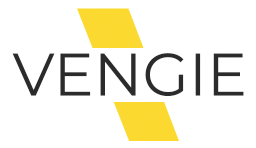Table of Contents
Introduction
Navigating the probate process can be a daunting task, especially during a time of grief. Probate is the legal procedure through which a deceased person’s will is validated and their estate is administered according to their wishes or, in the absence of a will, according to the law. Understanding the intricacies of probate is essential for anyone involved in managing an estate, whether you are an executor, beneficiary, or legal professional.
In Ireland, probate plays a critical role in ensuring that the deceased’s assets are distributed fairly and in accordance with their intentions or statutory provisions. This blog aims to demystify probate services, providing you with the necessary knowledge to handle this process effectively. We will explore what probate entails, when it is required, the role of solicitors, and common challenges you might face. By the end of this guide, you will have a clearer understanding of how to approach probate, whether you are considering professional help or contemplating a do-it-yourself approach.
For a comprehensive overview of the probate process in Ireland, including legal definitions and procedural steps, you can refer to Citizens Information.
Stay with us as we delve into the details of probate services in Ireland, ensuring you are well-equipped to manage your loved one’s estate with confidence and care.
Please note that the information provided in this guide is for general understanding and may not cover all specific circumstances. For precise and up-to-date advice tailored to your situation, it is always best to consult with a professional probate solicitor.

Image source – free license Freepick
Understanding Probate in Ireland
Probate is a legal process that ensures the proper distribution of a deceased person’s estate. In Ireland, this process involves validating the deceased’s will, appointing an executor, and overseeing the distribution of assets to beneficiaries. Here’s a comprehensive look at probate in Ireland.
Definition of Key Terms
- Will: A legal document outlining the wishes of the deceased regarding the distribution of their assets.
- Executor: An individual appointed in the will to administer the estate.
- Intestate: The state of dying without a will, leading to the distribution of assets according to statutory law.
The Legal Framework
The probate process in Ireland is governed by the Succession Act 1965, which sets out the rules for administering the estate of a deceased person. This legislation ensures that the deceased’s assets are distributed according to their wishes or, in the absence of a will, in accordance with the law.
Steps Involved in the Probate Process
- Locating and Validating the Will: The executor locates the will and applies to the Probate Office or the District Probate Registry for a Grant of Probate.
- Filing the Will: The executor files the original will, a death certificate, and a probate application form with the Probate Office.
- Obtaining the Grant of Probate: Once the Probate Office validates the will, a Grant of Probate is issued. This document confirms the executor’s legal authority to administer the estate.
- Administering the Estate: The executor gathers the deceased’s assets, pays any debts and taxes, and distributes the remaining assets to the beneficiaries as outlined in the will.
- Finalising the Estate: The executor completes any remaining administrative tasks and closes the estate.
Importance of Probate
Probate is essential to ensure that the deceased’s wishes are honoured and that their assets are distributed fairly and legally. It provides legal clarity and protection for both the executor and the beneficiaries.
Challenges in the Probate Process
The probate process can be complex, especially if there are disputes among beneficiaries, ambiguous terms in the will, or significant debts and taxes to be settled. Engaging a probate solicitor can help navigate these challenges and ensure a smooth administration of the estate.
Understanding the probate process is crucial for anyone dealing with the estate of a deceased loved one. Whether you’re an executor or a beneficiary, knowing your rights and responsibilities can help you manage the process more effectively.
When is Probate Required?
Probate is the legal process that takes place after someone dies, involving the validation of their will, if one exists, and the administration of their estate. In Ireland, probate is required under several circumstances to ensure that the deceased person’s assets are distributed according to the law. Here’s when probate is typically required:
- Presence of Significant Assets
- If the deceased person had significant assets such as property, bank accounts, shares, or investments, probate is generally required. This is to ensure that these assets are legally transferred to the rightful beneficiaries.
- Existence of a Will
- When a person dies leaving a valid will, probate is necessary to confirm the executor’s authority to administer the estate as per the deceased’s wishes. The executor named in the will must apply for a Grant of Probate to gain the legal right to manage the estate.
- Intestate Situations
- If a person dies without a will (intestate), probate is needed to appoint an administrator who will manage the estate. The administrator, often a close relative, must apply for a Grant of Letters of Administration, allowing them to distribute the assets according to the rules of intestacy.
- Bank and Financial Institutions’ Requirements
- Many banks and financial institutions require probate to release funds from accounts held by the deceased. They need to see the Grant of Probate or Letters of Administration to ensure the correct distribution of funds.
- Property Transfer
- When the deceased owned property, probate is generally required to transfer the ownership to the beneficiaries. The legal title of the property must be updated, and probate provides the necessary authority to make this change.
- Debts and Liabilities
- If the deceased had outstanding debts, probate might be necessary to ensure that these are settled appropriately. The executor or administrator uses the probate process to pay off debts and distribute the remaining assets to the beneficiaries.
- Disputed Estates
- In cases where the validity of the will is contested or there are disputes among beneficiaries, probate is essential to resolve these issues legally. The court may need to intervene to ensure a fair and lawful distribution of the estate.
In summary, probate is required in Ireland to manage and distribute a deceased person’s estate legally and fairly. Whether dealing with significant assets, property, or resolving disputes, probate provides the legal framework to ensure that everything is handled correctly. If you find yourself dealing with an estate, it’s often advisable to seek professional guidance to navigate the probate process smoothly.

Image source – free license Freepick
The Role of a Probate Solicitor
The role of a probate solicitor is integral in guiding individuals through the often complex and emotionally taxing process of probate. Here’s an overview of the key responsibilities and services provided by a probate solicitor in Ireland:
1. Advising on the Legal Process
Probate solicitors provide expert advice on the legal steps involved in administering an estate. This includes explaining the probate process, outlining the responsibilities of an executor, and clarifying the legal terminology.
2. Assisting with Documentation
A probate solicitor helps prepare and file the necessary legal documents to obtain a Grant of Probate or Letters of Administration. This includes:
- Drafting and submitting the application to the Probate Office.
- Preparing the Inland Revenue Affidavit for tax purposes.
- Ensuring all documents comply with legal standards.
3. Managing Estate Assets
Managing the deceased’s assets is a critical function of a probate solicitor. They assist in:
- Identifying and valuing the estate’s assets.
- Ensuring the assets are managed and protected during the probate process.
- Facilitating the sale or transfer of property, if required.
4. Handling Debts and Liabilities
A probate solicitor ensures that all debts and liabilities of the estate are identified and settled. This includes:
- Notifying creditors and settling outstanding debts.
- Dealing with any claims against the estate.
5. Tax Matters
Probate solicitors provide guidance on inheritance tax and other tax implications related to the estate. They help:
- Calculate any tax due on the estate.
- File necessary tax returns.
- Ensure compliance with tax regulations to avoid penalties.
6. Resolving Disputes
Disputes can arise during the probate process, often related to the validity of the will or the distribution of assets. A probate solicitor can:
- Mediate and resolve conflicts among beneficiaries.
- Represent the estate in legal proceedings if disputes escalate to court.
7. Distributing the Estate
Finally, probate solicitors oversee the distribution of the estate according to the will or, if there is no will, the rules of intestacy. They ensure:
- Beneficiaries receive their entitled inheritance.
- The estate is wound up efficiently and legally.
8. Providing Continuous Support
Throughout the probate process, a probate solicitor offers continuous support and updates to the executor and beneficiaries, ensuring they are informed and comfortable with each step.
Engaging a probate solicitor can significantly ease the burden on executors and ensure that the probate process is handled professionally, accurately, and in accordance with Irish law. This professional guidance is especially valuable in complex estates or where disputes may arise.
DIY Probate: Is it Advisable?
When dealing with the death of a loved one, the probate process can be an additional source of stress. Some may consider handling probate themselves, known as DIY probate, to save on legal fees and speed up the process. However, before deciding to undertake probate without professional assistance, it’s important to weigh the pros and cons.
Pros of DIY Probate
- Cost Savings: One of the primary reasons people opt for DIY probate is to avoid solicitor fees. By managing the process yourself, you can save a considerable amount of money, especially if the estate is straightforward.
- Control and Transparency: Handling probate yourself allows you to have full control over the process. You’ll be directly involved in every step, ensuring transparency and understanding of the proceedings.
- Personal Involvement: Some find it comforting to be directly involved in the process, as it can provide a sense of closure and fulfilment.
Cons of DIY Probate
- Complexity: The probate process can be legally and administratively complex. It involves understanding legal terminology, completing numerous forms, and meeting strict deadlines. Mistakes can lead to significant delays and additional costs.
- Time-Consuming: Probate requires a substantial time investment. Executors need to gather and value assets, pay debts and taxes, and distribute the estate according to the will or intestacy rules. This can be particularly challenging if you are already dealing with grief.
- Potential for Disputes: DIY probate can sometimes lead to family disputes, especially if beneficiaries disagree with how the estate is being handled. A solicitor can act as a neutral third party to help manage and mediate such conflicts.
- Legal and Tax Implications: Estates may have complex tax implications, including inheritance tax. A lack of understanding in these areas can result in penalties or fines. Professional solicitors are well-versed in these matters and can help ensure compliance with all legal requirements.
When DIY Probate Might Be Feasible
DIY probate might be a viable option if:
- The estate is straightforward with no property.
- The value of the estate is below the inheritance tax threshold.
- There are no disputes among beneficiaries.
- There is a clear and valid will.
Risks Associated with DIY Probate
Undertaking probate without professional help carries several risks, including:
- Errors in Documentation: Incorrectly filled forms or missing documents can delay the process.
- Misinterpretation of the Law: Misunderstanding legal requirements can lead to incorrect distributions or tax penalties.
- Financial Liability: As an executor, you are personally liable for any mistakes made during the probate process.
While DIY probate can save money and give you more control, it is not without its challenges and risks. For many, the peace of mind and expertise provided by a probate solicitor far outweigh the potential savings. If you are considering DIY probate, it is crucial to thoroughly research the process and assess the complexity of the estate. If in doubt, seeking professional advice is always advisable to ensure that the estate is managed efficiently and correctly.

Image source – free license Freepick
Common Challenges in the Probate Process
The probate process, while essential, can often be fraught with challenges that can delay proceedings and cause stress for the involved parties. Here are some of the most common challenges encountered:
- Disputed Wills
- Family Conflicts: Disagreements among beneficiaries or family members regarding the distribution of assets can lead to disputes. Such conflicts often arise when the terms of the will are unclear or perceived as unfair.
- Validity of the Will: Questions about the validity of the will can arise, particularly if there are allegations of forgery, undue influence, or if the will was not executed properly according to legal requirements.
- Locating and Valuing Assets
- Hidden or Unknown Assets: Finding all the deceased’s assets can be challenging, especially if they are not listed in the will or known to the family.
- Asset Valuation: Determining the accurate value of assets such as real estate, jewellery, or investments can be complicated and may require professional appraisals.
- Tax Liabilities
- Inheritance Tax: Calculating and paying inheritance tax can be complex. Executors must ensure that all taxes due are paid from the estate, which requires a clear understanding of tax laws and thorough documentation of the estate’s value.
- Unexpected Debts: Discovering outstanding debts or liabilities of the deceased can further complicate the distribution of assets. Executors need to settle these debts before distributing the remaining estate.
- Executor’s Duties and Responsibilities
- Legal and Administrative Obligations: Executors have a legal responsibility to manage the estate according to the law and the will’s terms. This includes filing legal documents, paying debts, and distributing assets, which can be overwhelming without legal expertise.
- Time and Stress: The probate process can be time-consuming and stressful, especially for executors who are also grieving the loss of a loved one.
- Delays in the Probate Process
- Court Delays: The probate court system can be slow due to backlogs, which can delay the granting of probate and the final distribution of the estate.
- Incomplete or Incorrect Documentation: Errors or omissions in the paperwork submitted to the court can result in significant delays. Ensuring all documents are complete and accurate is crucial.
- International Assets
- Cross-Border Issues: Managing assets located in different countries can introduce additional legal complexities. Different jurisdictions may have varying laws regarding inheritance, which can complicate the probate process.
- Beneficiary Issues
- Locating Beneficiaries: Finding all the beneficiaries named in the will can be difficult, especially if they have moved or are out of contact.
- Disputes Among Beneficiaries: Even if the will is clear, disputes can still arise among beneficiaries over the interpretation of the will or the management of the estate.
Navigating these challenges often requires the expertise of a probate solicitor, who can provide guidance and ensure the process is handled efficiently and in compliance with legal requirements. Executors should consider seeking professional help to mitigate these issues and facilitate a smoother probate process.
Costs Associated with Probate Services
Understanding the costs associated with probate services is crucial for anyone going through the probate process in Ireland. Here, we break down the typical expenses you might encounter:
1. Probate Court Fees
- Application Fee: There is a standard fee for applying for a Grant of Probate or Letters of Administration. As of 2023, the fee is approximately €200, but this can vary slightly depending on specific circumstances.
- Additional Fees: Additional fees may apply for things like certified copies of the grant.
2. Solicitor Fees
- Fixed Fees: Some solicitors offer fixed-fee services for straightforward probate cases. This can range from €1,500 to €3,000, depending on the complexity of the estate.
- Hourly Rates: For more complex cases, solicitors might charge an hourly rate. Rates can vary widely, typically ranging from €150 to €350 per hour.
- Percentage of Estate: In some instances, solicitors may charge a percentage of the estate’s value, usually between 1% and 4%.
3. Valuation Costs
- Property Valuation: If the estate includes property, a professional valuation is necessary. This can cost between €150 and €400 per property.
- Other Assets: Valuations for other assets such as shares, jewellery, or collectibles may also incur fees.
4. Executor Fees
- Professional Executors: If a professional, such as a solicitor, is appointed as the executor, they will charge for their time and services. This is typically similar to solicitor fees.
- Non-professional Executors: Family members or friends acting as executors may claim expenses incurred during the process, such as travel costs or administrative expenses.
5. Tax Liabilities
- Inheritance Tax (CAT): Beneficiaries might need to pay Capital Acquisitions Tax on the inheritance. The rate is currently 33% on amounts above the threshold, which varies depending on the relationship to the deceased.
- Professional Tax Advice: Hiring a tax advisor to navigate potential tax liabilities can add to costs, typically charging between €100 and €300 per hour.
6. Miscellaneous Costs
- Death Certificate: Official copies of the death certificate are required for probate. Each copy typically costs around €20.
- Administrative Costs: There may be additional administrative expenses, including postage, photocopying, and couriers, which can accumulate over time.
Tips for Managing Probate Costs
- Shop Around: Obtain quotes from multiple solicitors to find the best balance of cost and service.
- Discuss Fees Upfront: Ensure you have a clear understanding of all potential fees before engaging a solicitor.
- DIY Where Possible: Consider handling simpler aspects of the process yourself to save on solicitor fees, while using professional help for more complex tasks.
- Budget for Taxes: Be aware of potential inheritance tax liabilities and plan accordingly to avoid surprises.
Managing probate costs effectively can help reduce the financial burden during an already challenging time. Seeking professional advice and thoroughly understanding the fees involved are key steps in navigating the probate process smoothly.
Useful Resources and Support
Navigating the probate process can be challenging, but numerous resources and support systems are available to assist you. Below is a compilation of some useful resources that can provide guidance and support during this time.
Government and Legal Resources
- Citizens Information
The Citizens Information website offers detailed information on probate, including the process, necessary documentation, and legal implications. It is an excellent starting point for understanding the basics of probate in Ireland.
Citizens Information on Probate - Courts Service of Ireland
The Courts Service provides specific details on the procedures for applying for probate, including forms and guidance notes. This resource is particularly useful for understanding the administrative aspects of probate.
Courts Service of Ireland – Probate - Revenue Commissioners
For information on inheritance tax and other related tax obligations, the Revenue Commissioners’ website is an essential resource. It provides comprehensive guides on how inheritance tax is calculated and paid.
Revenue Commissioners – Inheritance Tax
Online Tools and Calculators
- Probate Cost Calculator
Several online tools can help estimate the costs involved in the probate process. While these calculators can give you a rough idea, it’s always best to consult with a solicitor for an accurate assessment. - Will Search Services
If you need to locate a will, various online services offer will search facilities. These services can help ensure that the latest version of the will is used in the probate process.
Support Groups and Counselling Services
- Irish Hospice Foundation
The Irish Hospice Foundation provides support for those dealing with bereavement. Their resources include counselling services, support groups, and practical advice on handling the legal aspects of a loved one’s death.
Irish Hospice Foundation - Bereavement Counselling Service
This organisation offers counselling and support to those grieving a loss. They can provide emotional support and practical advice on dealing with probate and other related issues.
Bereavement Counselling Service - Anam Cara
Anam Cara is a support organisation that offers resources and support to parents who have lost a child. Their services include support groups, information evenings, and counselling referrals.
Anam Cara
These resources can provide invaluable assistance as you navigate the probate process. While the process can be complex and emotionally taxing, leveraging these resources can help you manage the various aspects of probate more effectively. For personalised advice, consider consulting a probate solicitor who can guide you through each step.
Conclusion
Navigating the probate process in Ireland can be a daunting task, especially during a time of grief. Understanding the intricacies of probate, the roles of those involved, and the challenges that may arise is crucial for ensuring a smooth transition of assets. Whether you opt to handle probate yourself or engage a professional probate solicitor, being informed is key to making the right decisions.
Probate services can significantly ease the burden by providing expert guidance, managing legal complexities, and ensuring compliance with Irish laws. While it might seem tempting to cut costs with DIY probate, the potential risks and complications often outweigh the benefits. Seeking professional advice can save time, reduce stress, and ultimately protect the interests of all beneficiaries.
If you need more detailed guidance or have specific questions about probate services in Ireland, don’t hesitate to contact a qualified probate solicitor. For further resources and support, visit the Citizens Information Board, which provides comprehensive information on probate and related matters. (Read about Notar in Ireland)
Understanding probate is the first step towards ensuring a smooth and respectful handling of a loved one’s estate. Equip yourself with knowledge and professional support to navigate this process with confidence.
Please note that the information provided in this guide is for general understanding and may not cover all specific circumstances. For precise and up-to-date advice tailored to your situation, it is always best to consult with a professional probate solicitor.











